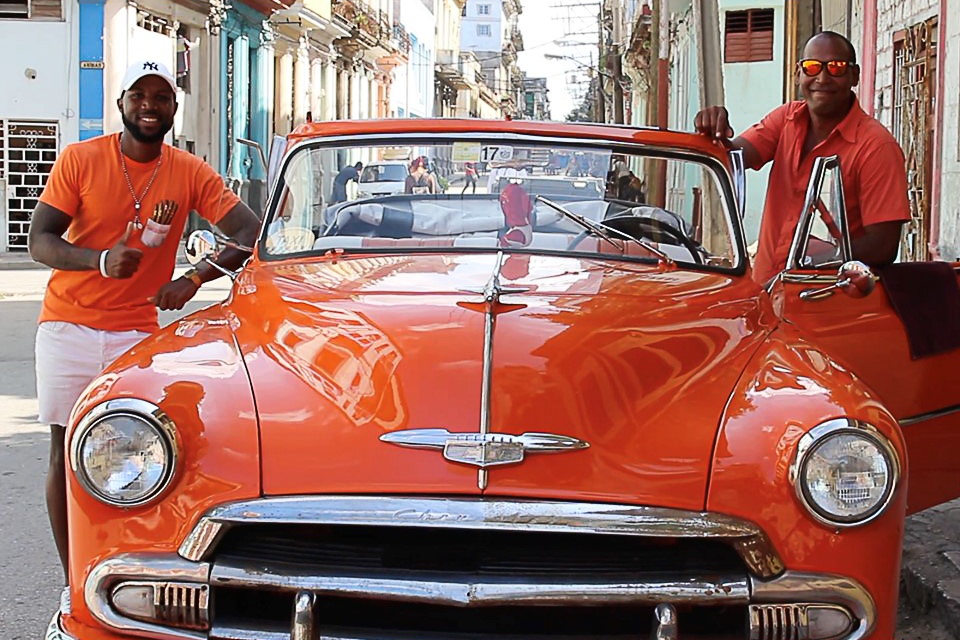After a hiatus in 2020 the Moro Spanish Film Festival, presented by Palace, returns in 2021 with a selection of 29 films promising an interesting journey across Spanish speaking countries and cultures with two main strands: Reel Español — 20 feature films from Spain, and Reel Latino — 9 films from Latin America including Argentina, Chile, Cuba, Mexico and Uruguay. There’s conflict to comedy and crime to coming-of-age featuring established Spanish stars as well as fresh acting talent.
In the lineup are several dramas with tough themes and reckonings with the past: While at War (Mientras dure la Guerra) is an exposé of the 1936 Spanish coup; Spider (Araña), where Chile’s past haunts the lives of a group of one-time radicals; The Silent War (Sordo), during WWII a fugitive guerilla tries to survive in northern Spain; White On White (Blanco en blanco) presents a portrait of a photographer who crosses dangerous lines in late 19th century Tierra del Fuego; and Out in the Open (Intemperie) is a Western set in the aftermath of the Spanish civil war. Other dramas include: A Thief’s Daughter (La hija de un ladrón), where a young Barcelona mother needs to decide whether to reject her father so as to protect her child; The August Virgin (La virgen de agosto) celebrates a women’s journey of discovery over a long, languid Madrid summer; and The Money Changer (Así habló el cambista), a satirical crime epic set in Uruguay and spanning the 1950s to the 1970s.
There are a balance of comedies, some dark: The Plan (El Plan) is set in a small apartment where three friends are forced to confront revealing truths; Heroic Losers (La odisea de los Giles), the number one Argentinian movie of 2019, is a comedy heist with unforgettable characters; Bye Bye Mr Etxebeste! (Agur Etxebeste!), a social satire about marriage, corruption and power in local politics; I Can Quit Whenever I Want (Lo dejo cuando quiera), three unemployed university professors turn to the recreational drug trade; If I Were Rich (Si yo fuera rico), a rags-to-riches story of lost love and wealth found; Under the Same Roof (Bajo el mismo techo), where battlelines are drawn through the middle of a married couple’s house; The Wedding Unplanner (Hasta que la boda nos separe), where the women hired to plan her best friend’s wedding falls in love with the groom.
Romantic adventures include: Ema, a Golden Globe Lion-winning drama about a free-spirited dancer coming to terms with her wild lifestyle; Rosa’s Wedding (La boda de Rosa), the heartwarming opening movie about a single woman who shocks her family with the announcement of a mystery wedding; The Europeans (Los europeos), a romantic holiday adventure set in the wild world of 1950’s Ibiza where dreams are not always what they seem; The Innocence (La inocencia), a coming-of-age story of adolescent angst in a conservative village; Wishlist (La Lista de los deseos), a road movie about three women who make a bucket list of all the things they wanted to do but never did.
There are several thrillers: The Goya Murders (El asesino de los caprichos), in a world of art collectors Francisco Goya’s paintings are a touchstone for a detective hunting down a serial killer; The Island of Lies (El Santa Isabel) follows three women who saved many lives during a boat accident when over 200 Spanish immigrants perished sailing towards a new life in the 1920s; Cross the Line (No matarás), on an adventurous night a good-natured man has an unexpected confrontation; and a documentary: Latigo, in which Australian comic and filmmaker Simon Palomares uncovers Cuba’s vibrant comedy scene and exuberant characters.
I began my Spanish festival with Latigo.
Simon Palomares, an Aussie best known for his work with Wogs Out of Work and his comedy appearances, has directed the documentary Latigo, which explores Cuba’s lively comedy scene through performances and interviews accompanied by vibrant music. How has a country that has effectively been cut off from most of the world for over six decades nurtured such a rich scene? This is the question that takes Palomares to the heart of what Cubans find funny. In doing so, he discloses insights into both Cuba itself and how comedy is used to deal with the challenges of daily life. Interviewing a range of comedians Palomares examines how humour can be a powerful tool for political commentary, exploring the impact of media technologies such as television and the internet. In a brief, revealing segment, Palomares plays an excerpt from a Hannah Gadsby monologue to a group of assembled performers and seeks their comments. (By the way, when asked, none of them seemed to have heard of Bill Cosby.)
Featuring Andrea Doimeadiós, Omar Franco, Irela Bravo, Venicia Feria Borjas, Bob Collins, Manrufo Orlando Mariconchi and many others, Latigo is a window into a fascinating world of which they speak freely: “Cubans have one thing that Westerners don’t have, time”, says one; “Humour is based on hardship and problems”, says another; “Cubans laugh about their problems”, “The Cuban is happy with nothing and the world should learn to be happy with nothing”, “Humour is a whip with jiggle-bells at the tip”, say various others. We see a range of performers (over 20 in all), predominantly men but also several women, some are actors and theatre people turned comedians; a few individuals have been working for 30 years, others for seven or less; a group of three men say twenty-seven years.
Latigo is lively and entertaining; gutsy, down-to-earth and, at the same time, uplifting.
2021 Moro Spanish Film Festival is on at Palace James St and Palace Barracks from Wednesday 28 April to Sunday 16 May. Click HERE for details.
Special event
Filmmaker Simon Palomares will introduce the screening of his documentary Latigo and take part in a Q&A at Palace James St at 6.30 pm on Tuesday 4 May.
Cover image supplied: a still from Latigo (2019), documentary from Cuba. Director: Simon Palomares


